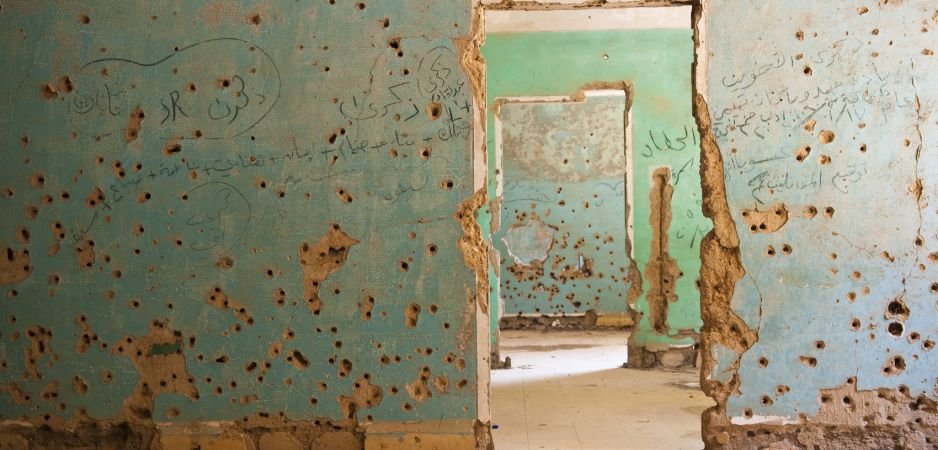Throughout history, the quest for peace has stood as one of humanity’s most profound endeavors. In alignment with the International Day of Peace, the Bahá’í teachings provide an enlightening framework for contemplating the future of war and the possibility of a reconciled world. This discussion aims to explore the core principles of Bahá’í beliefs concerning peace, the nature of conflict, and the potential for an enduring cessation of hostilities.
The Bahá’í Faith delineates a trifecta of interconnected principles that are crucial to the attainment of global peace: the oneness of humanity, the elimination of all forms of prejudice, and the establishment of a universal language of cooperation. Together, these ideals form the cornerstone of a peaceful society, fostering mutual understanding and respect. The recognition of the oneness of humanity is particularly significant, as it invites individuals to view themselves not merely as citizens of their local or national contexts but as members of a single global community. This perspective serves to diminish divisive loyalties and pave the way for collaborative efforts aimed at conflict resolution.
In examining the historical roots of war, Bahá’í teachings highlight the destructive ramifications of prejudice and intolerance. War is often borne from deep-seated animosities exacerbated by societal divisions. In order to eradicate these divisive forces, the Bahá’í Faith advocates for the establishment of social structures that prioritize unity over separation. This involves fostering an environment where individuals from diverse backgrounds can engage in meaningful dialogue, share experiences, and collectively explore solutions to societal challenges.
Furthermore, the notion of education as a vital tool for peace is expounded within Bahá’í writings. This extends beyond traditional academic pursuits; it encompasses moral and spiritual education, awakening within individuals a desire for justice and compassion. Bahá’í scholars emphasize that a spiritually educated populace is better equipped to navigate conflict with empathy rather than aggression. As education expands its horizons to include the tenets of interfaith dialogue and global citizenship, societies may cultivate a culture of harmony that precludes the emergence of war.
Of equal importance is the concept of justice, which Bahá’í teachings assert must be woven into the fabric of societal governance. Justice serves as a foundation upon which equitable systems can be constructed, preventing the disparities that often give rise to conflict. A peaceful world is inextricably linked to the establishment of just laws and policies, which provide equal opportunities for all and ensure that grievances are addressed fairly. It is through the lens of justice that a societal structure can emerge where the roots of warfare are effectively addressed and resolved.
In contemplating whether war will ever end, it is imperative to recognize that the elimination of conflict is not merely a distant dream, but an achievable reality as envisioned by Bahá’í teachings. However, this requires a concerted effort at both individual and societal levels. For peace to be realized, there must be a collective commitment to embody the principles of love and respect for one another. This entails actively engaging in initiatives that promote reconciliation, fostering environments where disputes can be resolved amicably and collaboratively.
The role of leaders cannot be understated in this quest. Elected officials and community leaders are tasked with realizing the vision of peace through effective governance and maternal compassion. By embodying the very principles they promote, leaders can inspire their communities to eschew violence, opt for dialogue, and prioritize collective well-being over individual gain. Thus, a leadership model rooted in service and ethical practices is essential in steering humanity towards a more harmonious existence.
Interfaith collaboration also emerges as a vital pathway towards peace. The Bahá’í Faith teaches that religions, while distinct in their expressions, share a common purpose—the spiritual advancement of humankind. Collaborative efforts among various faith groups can amplify the push for peace, allowing diverse communities to unite against the scourge of violence. Such interfaith initiatives foster understanding and solidarity, creating a robust network capable of addressing the underlying causes of conflict.
The Bahá’í perspective on the end of war reflects an inherently optimistic view of human potential. It is predicated upon a vision where unity supersedes division, where collaboration replaces contention, and where love prevails over hatred. This vision contemplates a world wherein the convergence of different cultures, faiths, and ideologies is celebrated rather than feared. In essence, Bahá’í teachings provide both a philosophical and practical framework for transcending the cycle of war, promoting reconciliation and understanding among all people.
In conclusion, as we observe the International Day of Peace, it is vital to reflect on the Bahá’í teachings that illuminate pathways toward a world liberated from war. With a foundation rooted in the oneness of humanity, justice, and education, these teachings offer transformative insights. They highlight that the cessation of war is not an impossibility but rather a collective responsibility. Faced with the challenges of our contemporary world, it is incumbent upon each individual to contribute to cultivating peace, nurturing understanding, and ultimately realizing the dream of a war-free existence.
